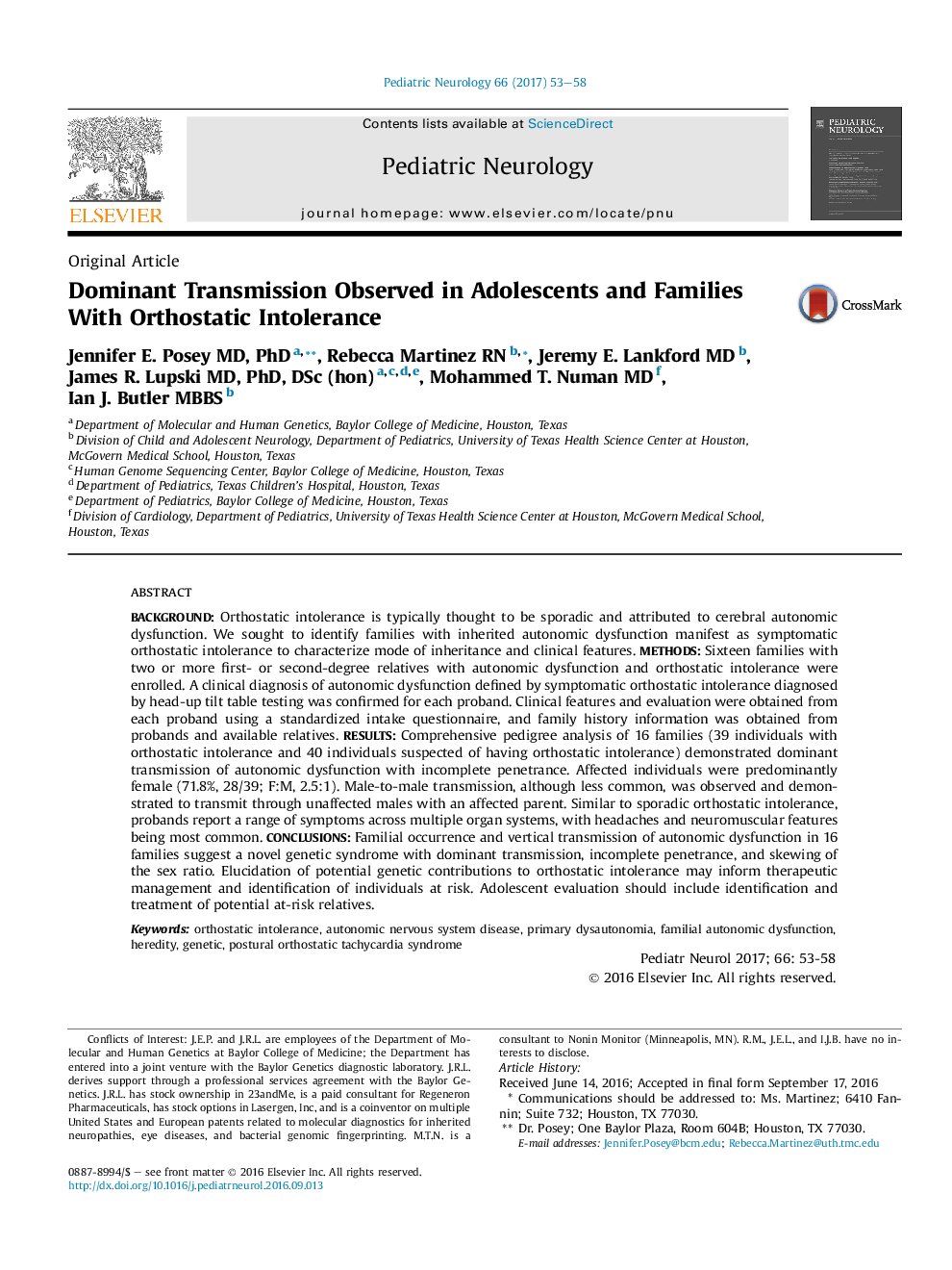| کد مقاله | کد نشریه | سال انتشار | مقاله انگلیسی | نسخه تمام متن |
|---|---|---|---|---|
| 5633043 | 1581260 | 2017 | 11 صفحه PDF | دانلود رایگان |
BackgroundOrthostatic intolerance is typically thought to be sporadic and attributed to cerebral autonomic dysfunction. We sought to identify families with inherited autonomic dysfunction manifest as symptomatic orthostatic intolerance to characterize mode of inheritance and clinical features.MethodsSixteen families with two or more first- or second-degree relatives with autonomic dysfunction and orthostatic intolerance were enrolled. A clinical diagnosis of autonomic dysfunction defined by symptomatic orthostatic intolerance diagnosed by head-up tilt table testing was confirmed for each proband. Clinical features and evaluation were obtained from each proband using a standardized intake questionnaire, and family history information was obtained from probands and available relatives.ResultsComprehensive pedigree analysis of 16 families (39 individuals with orthostatic intolerance and 40 individuals suspected of having orthostatic intolerance) demonstrated dominant transmission of autonomic dysfunction with incomplete penetrance. Affected individuals were predominantly female (71.8%, 28/39; F:M, 2.5:1). Male-to-male transmission, although less common, was observed and demonstrated to transmit through unaffected males with an affected parent. Similar to sporadic orthostatic intolerance, probands report a range of symptoms across multiple organ systems, with headaches and neuromuscular features being most common.ConclusionsFamilial occurrence and vertical transmission of autonomic dysfunction in 16 families suggest a novel genetic syndrome with dominant transmission, incomplete penetrance, and skewing of the sex ratio. Elucidation of potential genetic contributions to orthostatic intolerance may inform therapeutic management and identification of individuals at risk. Adolescent evaluation should include identification and treatment of potential at-risk relatives.
Journal: Pediatric Neurology - Volume 66, January 2017, Pages 53-58.e5
